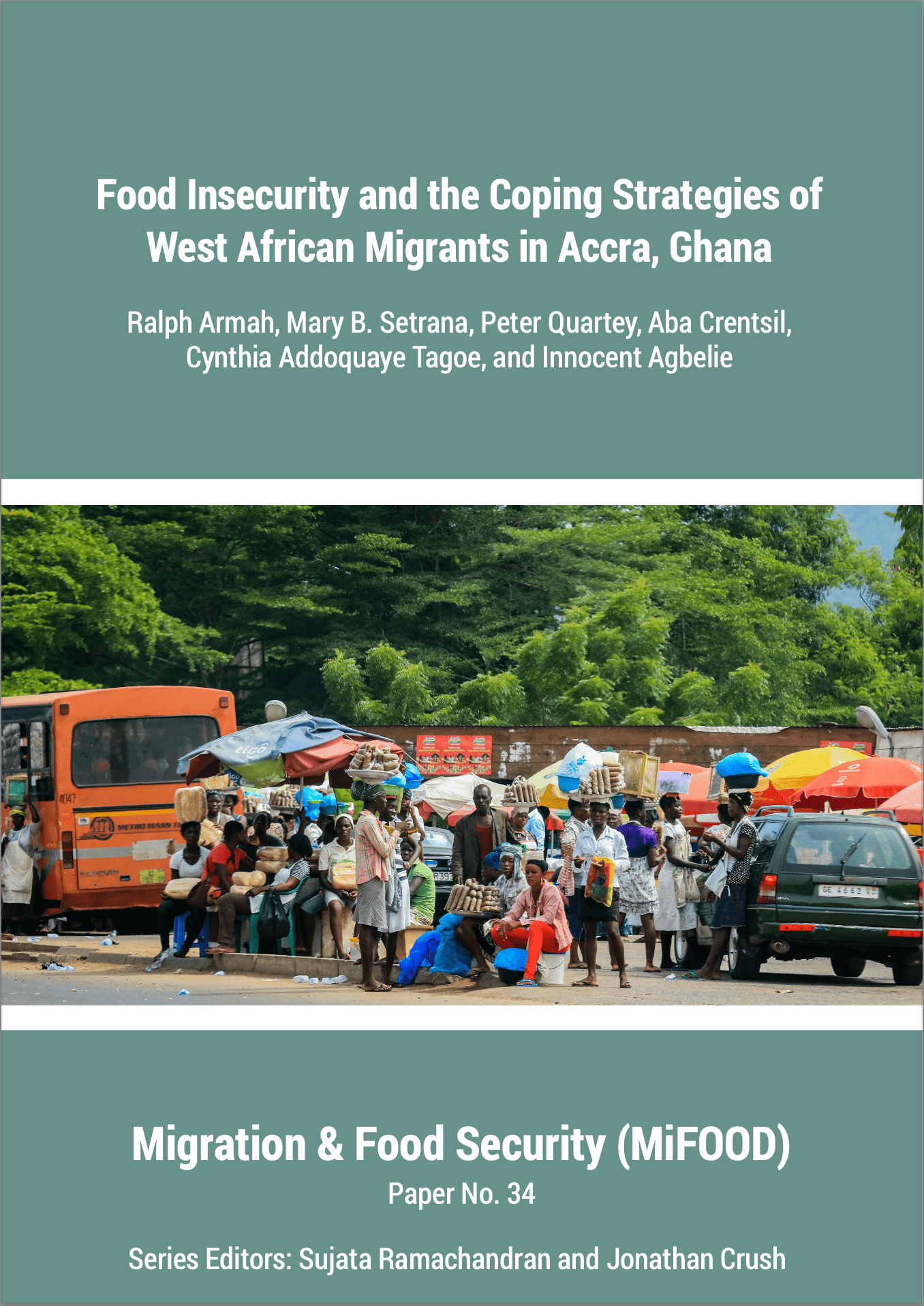This paper examines the food insecurity experiences and coping strategies of West African migrants in Accra, Ghana, across three periods: pre-COVID-19, during the pandemic, and post-COVID-19. Utilizing a survey of 420 migrants, the study explores the interplay between remittances, socioeconomic factors, and food security. The findings reveal that food insecurity was most severe during the pandemic, with remittances—especially food remittances—offering limited mitigation due to underlying vulnerabilities. Coping strategies employed by migrants included reducing meal frequency, relying on less preferred foods, borrowing food, and seeking social support. The study highlights the need for targeted policies to strengthen urban food systems, provide social safety nets, and enhance the resilience of migrant communities during crises. These findings contribute to the literature on migration and food security by offering insights into the vulnerabilities and adaptive behaviors of urban migrants in the face of systemic shocks.

